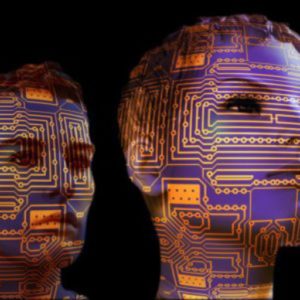 Welcome to Psi-fi.net. It’s pronounced “sye-fye,” same as sci-fi. The difference is that “psi” (ψ) stands for psychology, the study of the mind, while “fi” (Φ) stands for fiction, same as it does in “sci-fi.”
Welcome to Psi-fi.net. It’s pronounced “sye-fye,” same as sci-fi. The difference is that “psi” (ψ) stands for psychology, the study of the mind, while “fi” (Φ) stands for fiction, same as it does in “sci-fi.”
Psi-fi (ψ-Φ) is psychological fiction that explores human consciousness in a technological context. Psi-fi stories often use a robot or an alien as a contrast character to a human, because “It takes an alien to understand humans.”
Sci-fi is about stretching the boundaries of scientific and engineering ideas but psi-fi is about stretching psychological ideas, in perception, language, dreaming, memory, motivation, imagination, creativity, agency, socialization, empathy, and above all, the mind-body problem: how does the immaterial mind connect to the physical body?
Psi-fi features robots and aliens the way genetic scientists use “knockout mice,” those with a few specific genes disabled or “knocked out” in order to see what those genes do. An android, for example, might be just like a human except lacking in intuition. How would that show up? It’s not about the robot. It’s about human psychology.
Psi-fi sticks relatively close to actual technology and AI concepts with just a little exaggeration. Stories involve no space battles, plasma guns, warp drives, or rampaging robots. Instead, they are stories about the human mind that take place in a context of modern technology.
The site features reviews of psi-fi-like novels as I find them. Some sci-fi from the classic era easily could qualify as psi-fi and some contemporary works as well. I hope readers will advise me on that.
I write posts on psi-fi ideas as they come up — story ideas or angles suggested by what I see and read. It’s a kind of thinking out loud, but it might help other writers interested in this genre.
As I publish my Psi-fi books, they become available on www.PsiFiBooks.com. See my work there.
Psi-fi is hereby deemed a genre of contemporary literature! Now if only Barnes & Noble agreed with me.
One Response to “Introducing Psi-fi: A New Genre of Fiction”
“How does the immaterial mind connect to the physical body?” That’s a universal theme worth writing about. The genre definitions get looser every year. Subcategories abound. Most SF is now marketed as SF and Fantasy, but plenty of psychological and even SF novels cross over into mainstream. Marketers love labels. The public loves a well told story, and if it happens to edify them as the same time, more power to it. I appreciate this site and will tag others to follow.